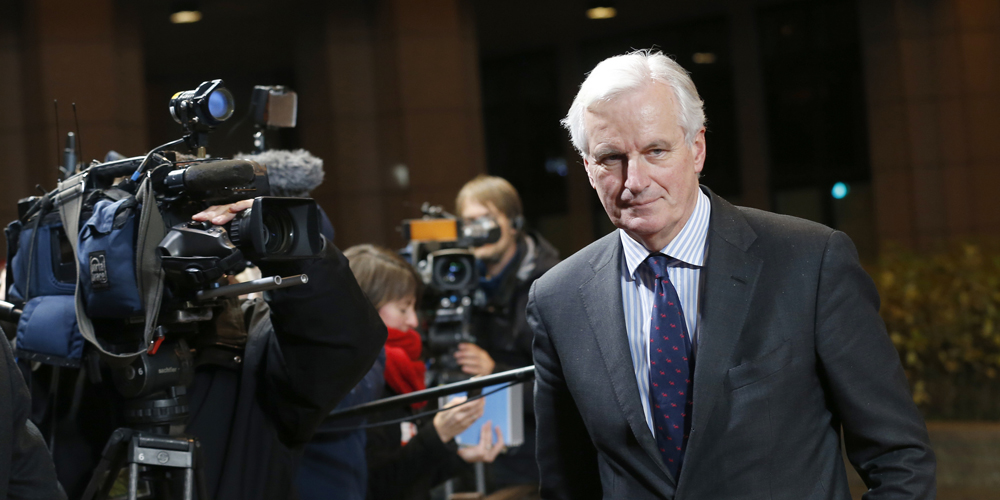The progressive view of Brexit from across the water
There have been innumerable discussions recently about the many different kinds of Brexit that may play out over the coming months and years. However, as we see it, there are three main types: a ‘Hard Brexit’, a ‘Soft Brexit’ and...
There have been innumerable discussions recently about the many different kinds of Brexit that may play out over the coming months and years. However, as we see it, there are three main types: a ‘Hard Brexit’, a ‘Soft Brexit’ and a ‘Labour Brexit’. Although what the final type actually entails we will have to wait and see!
Jeremy Corbyn’s Labour must be congratulated for its powerful campaign in the run up to the general election, it was clearly able to get its message across to millions of people and many more than was expected – both by opposition parties and by those within the progressive community itself. The message of being “for the many, not the few” resonated with close to 13 million voters and it has a truly progressive basis. Now is the time, though, to build on that success. We as progressives must not sit back and think that the job has been done because we managed to break through the noise and see the Conservatives wobble, just a bit.
There is harm being done. The damage is being felt, right now – even before Brexit has become a reality. The left’s role is only just beginning.
Clearly the value of the pound has plummeted, investments in industries such as vehicle manufacturing, farming and banking have already begun to fall and the number of people applying for critical jobs, like nurses, has dramatically reduced.
Unsurprisingly, net immigration fell sharply. EU citizens (some British nationals) have begun to leave after seeing their prospects, both social and economic, might disappear along with their EU passports.
The left must be the ones to stand up and say that this level of harm is not acceptable and must not continue.
Access to the single market is one of the most important issues currently being discussed. Corbyn must listen to those MPs who have expressed their wish to stay in the single market and the customs union. After all, these concerns are coming directly from their constituents.
The alternatives options are not positive: Will the UK end up like Norway, with access to the single market but also still paying into the EU budget? Many citizens who voted Leave would be more than a little concerned given that they were told – even though it was a lie – that by stopping paying into the EU they would get more money for the NHS.
A model with limited access to the single market could also prove equally unpopular, if the UK was to follow Switzerland and join the Schengen Area given how disparaging the Leave campaign was about any kind of free movement.
The Leave campaign was also very insistent that a free trade deal like CETA would not only be possible but successful. In real terms, however, it would be phenomenally complicated and would likely take up to ten years to introduce: by which time many millions of people would have begun to lose their jobs and frankly, their patience.
What if, in fact, no deal at all is achieved and the UK becomes a member of the World Trade Organisation? Can you imagine the UK working according to WTO regulations where, every day, trucks full of food supplies and medicines are queuing up in the port of Calais waiting for access to the UK simply to give nutrition to the population?
All these options and more are simply speculation.
In fact, if we can be confident of anything, it is that the relationship between the UK and the EU will be something completely different to what was promised by the Leave campaign during the referendum and even what is being currently discussed and debated. Remember, during the last EU council meeting in Brussels when Theresa May proposed “enthusiastically” that EU citizens would be allowed to stay in the UK after five years of residence? Another conservative leader, Angela Merkel, responded quite clearly that this was not enough!
I do not state this lightly but I do have empathy for Brexit secretary of state, David Davis. He has the task of going up against European Commission chief negotiator Michel Barnier. Many years ago I experienced his work first hand when I debated him on TV in France. He is a tough man. Barnier’s meeting with Labour officials last week and this week’s negotiations also give us a small insight into his thinking.
While Barnier’s statement after the first official negotiation with David Davis listed things they agreed upon, I must say I would not be surprised if it was not so friendly behind closed doors.
Yet I do believe that this is how it should be. The EU must remain firm and even more importantly, must remain united. There must be no option for the UK to look for potential coalition partners in the likes of Hungary, Poland and other new member states. Not because we want the UK to suffer – quite the opposite. The progressive community in the UK and Europe must stick together, must use each other, to ensure the best possible deal for everyone. This must be the progressive approach.
We must be, and show ourselves to be, the ones who care about the citizens, not just economically but, first and foremost, socially too. We should stand firm in our position, guaranteeing economic stability and social justice for the many and not letting anyone be harmed by the Conservative’s damaging neo-liberal thinking.
After all, we are all part of a progressive family and while the UK may be an island, please don’t feel like you are on your own. Remember that we, your European friends, are just across the water.

